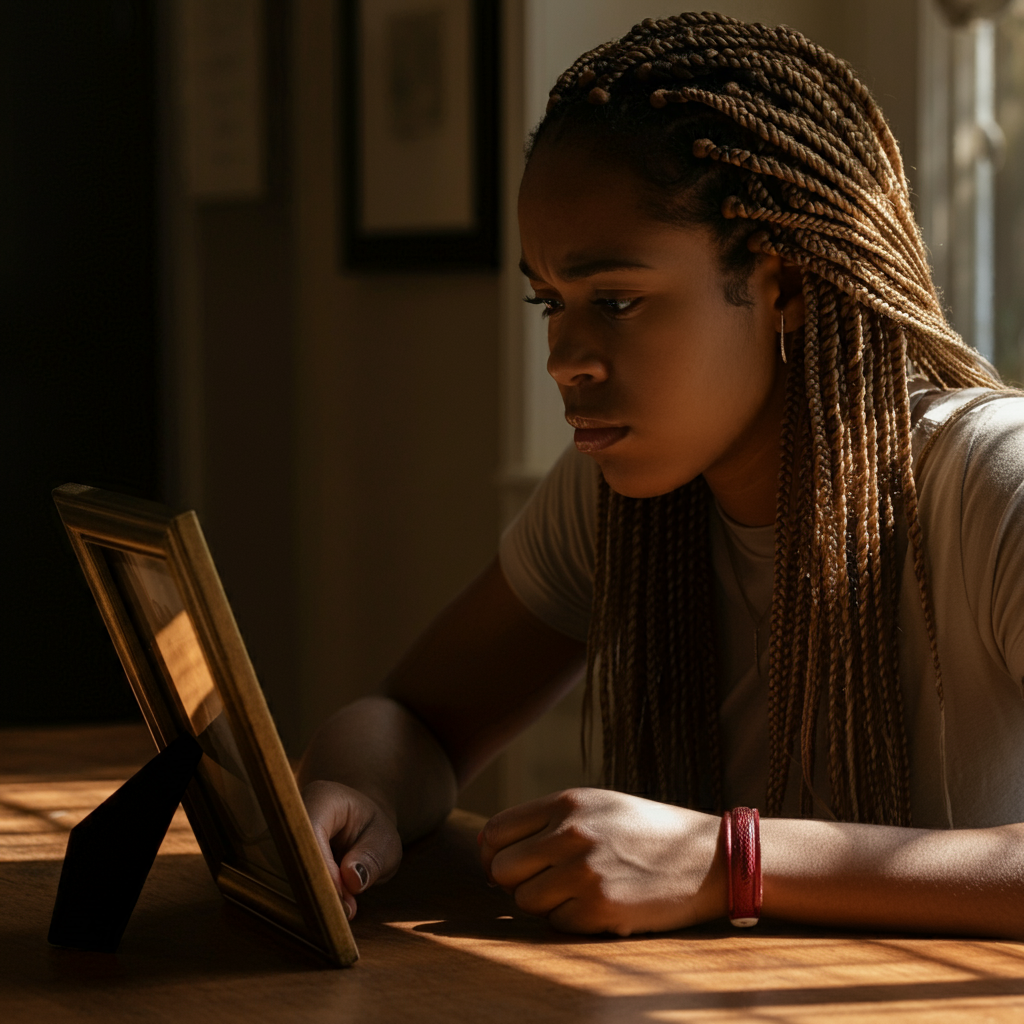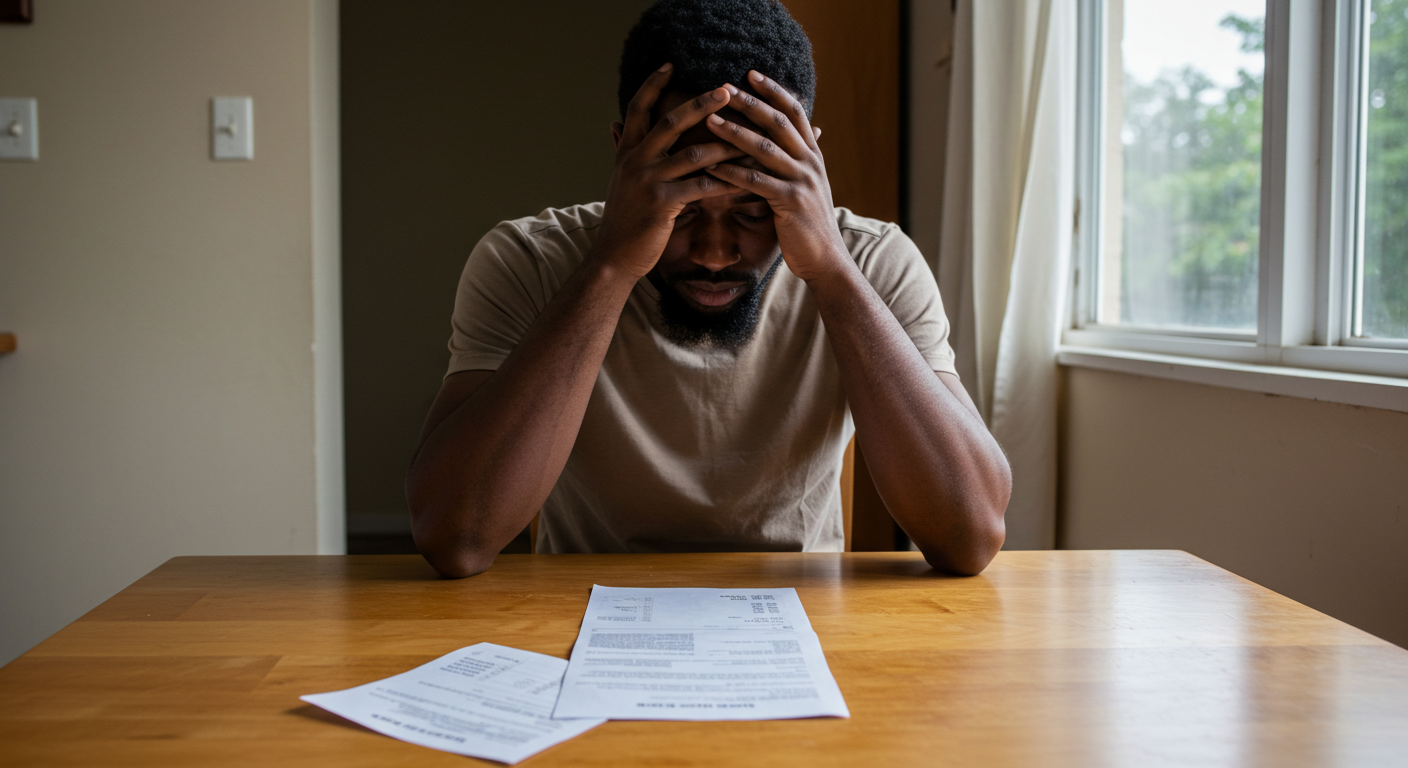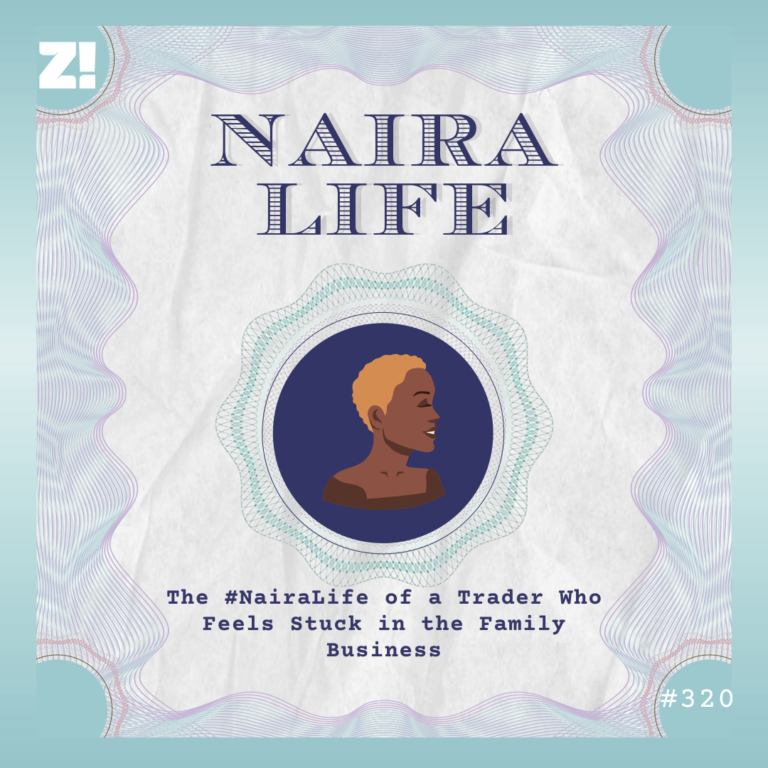Inflation has generally made it more difficult to live comfortably in Nigeria, but for Faridah*, it’s robbing her of her mother’s legacy.
She talks about enjoying the fruits of her mother’s generosity to others, deciding to follow in her mother’s footsteps, and how the high cost of living might be changing her values.
As told to Boluwatife

Everyone says their mother is their hero, but I actually mean it when I say the same. My mum passed away when I was 7 years old, but her life still inspires and teaches me so much. I’ve always wanted to be like her.
I don’t have many real-life memories of my mum, but I’ve heard so many stories about her that it feels like I actually knew her. While my dad came from a wealthy family and had always known how it felt to have money, my mum didn’t come from the same privilege.
My maternal grandparents were farmers who barely made enough to feed their children and send them to school. My mum and her siblings often had to hawk plantain and corn to support the family. That experience growing up made my mum more in tune with people who also had little to live on.
So, as soon as she started making money, she began helping people around her. I’ve heard about how my mum used her nursing profession to provide free healthcare for people in the community. Sick people would come to our family house, and my mum would use her own money to buy the injections she needed to treat them.
I’ve met at least three people who said my mum helped birth them and didn’t charge their parents. If she wasn’t assisting people with free medication, she was giving them food and money. My dad constantly shares stories about how he’d give my mum money to buy a bag of rice and come home to see that my mum had shared half of the bag’s contents with our neighbours.
Or when she’d use the money meant for our foreign Christmas clothes to buy slightly cheaper ones so she could buy Christmas clothes for the neighbours’ children, too.
You only had to tell my mum you liked the necklace she had on, and she was ready to take it off and give it to you. That was the kind of woman my mother was. She died in a car accident in 2005, and I wish I had spent more time with her. My only consolation is how much her good deeds have opened doors for me all my life.
My dad told me the story of how he didn’t pay my school fees for my first three years in secondary school simply because of my mum. He lost his bank job in 2008, just as I was rounding up primary school. According to my dad, he had already started the process of getting me into a public school since he could no longer afford the private school my siblings had attended.
Then, the private school’s principal — who had been friendly with my mum — called my dad to ask why she hadn’t seen me come to resume school. My dad explained the situation, and she said, “Why will Mummy Sara’s* daughter attend a public secondary school when I’m alive?”
The principal made sure my dad enrolled me in her school and refused to collect school fees. She said my mum had done her so much good that it would be a crime not to pay it forward to her children. I’d have probably gone the whole six years not paying anything if my dad hadn’t gotten a job in another state when I finished JSS 3 and moved us away.
When I first got into uni and was trying to do my registration, one of the school staff saw my surname and asked if I was related to my mum. I confirmed, and the man practically ignored others and started attending to me. He never told me how he knew my mum, and I didn’t bother to ask.
I’m also lucky to share an uncanny resemblance with my mum. Whenever I return to our state, I already know I’ll get stopped by at least one person and asked if I’m the daughter of Mummy Sara. Prayers and stories of how my mum helped them often follow. Some even squeeze money into my hands. This doesn’t just happen to me; my siblings experience it, too.
These experiences made me decide early on that I wanted to be as generous as my mum. It’s not my first instinct to help people; I think I got that from my dad. But after my registration experience at uni, I decided I wanted to follow in my mum’s legacy. I wanted to have a name that’d open doors for my children.
So, I began deliberately offering financial help and assistance. I lived in a school hostel for much of uni and made it a point to share my food always. Of course, sometimes I felt like my roommates took advantage of it, especially when they wouldn’t buy water and wait for me to buy for the entire room. But I refused to get angry.
I started buying food randomly for my class colleagues and recharge cards for the course rep. I was an efiwe, so I also started taking tutorial classes. My dad gave me a ₦30k monthly allowance, which hardly lasted three weeks because I made sure to lend money to anyone who complained. I also made it a tradition to visit orphanages on my birthdays and share food items with the children.
Since graduating from university, generosity has remained a big part of my life. During NYSC year, I took in two people and allowed them to live rent-free in the apartment my dad got me because they had accommodation issues. I also made it a habit to buy random gifts for my friends.
When I started working in 2022, I had to take a more streamlined approach to giving. My dad wasn’t giving me an allowance anymore, and I had to budget to survive on my ₦120k salary. But even with that, I usually budgeted at least ₦20k for random giving and loans monthly. When my salary increased to ₦250k in 2023, I increased my monthly giving budget to ₦50k.
However, I’ve had to cut back on giving since around December 2023. With transportation costs constantly increasing because of fuel prices and the drama of food costs now, I hardly retain any extra cash at the end of the month to do anything, much less be generous.
It’s funny how I comfortably lived on ₦80k – ₦100k in 2022 and still had some money left to save. But I earn more now, and it feels like I spend all my money on food, transportation, and data. Last month alone, I spent ₦90k transporting from my house in Surulere to work in Victoria Island. I spend like ₦80k just to feed myself monthly. Imagine if I wanted to share food with others.
It’s a struggle to save ₦10k monthly. My dad pays my rent, but I still have to handle utility bills and Band-A electricity tariffs, and it feels like I’m constantly struggling.
I can’t afford to buy random gifts for my friends anymore, and I’ve also had to cut down on outings. I constantly feel bad whenever someone asks me for a loan, and I have to explain that I don’t have cash to spare. Everyone understands when I say no because I’m usually generous—some even try to confirm I’m fine and whether I need money too so they can borrow for me. But it still feels like I’m not meeting people’s needs.
The worst thing is, I’m barely 26, and it already feels like I’m struggling to survive. What about when I have family responsibilities? Where will I get extra money to help people then? Maybe it was easier for my mum to extend a helping hand because money actually meant something in those days. It feels impossible to try to reach her standards with how inflation and the economy are moving these days.
I’ll keep trying my best, but it feels like an exercise in futility — no thanks to our rubbish government.
*Names have been changed for the sake of anonymity.
NEXT READ: My Father’s Money Is His, and It’ll Probably Never Be Mine

Get more stories like this and the inside gist on all the fun things that happen at Zikoko straight to your inbox when you subscribe to the Zikoko Daily newsletter. Do it now!




